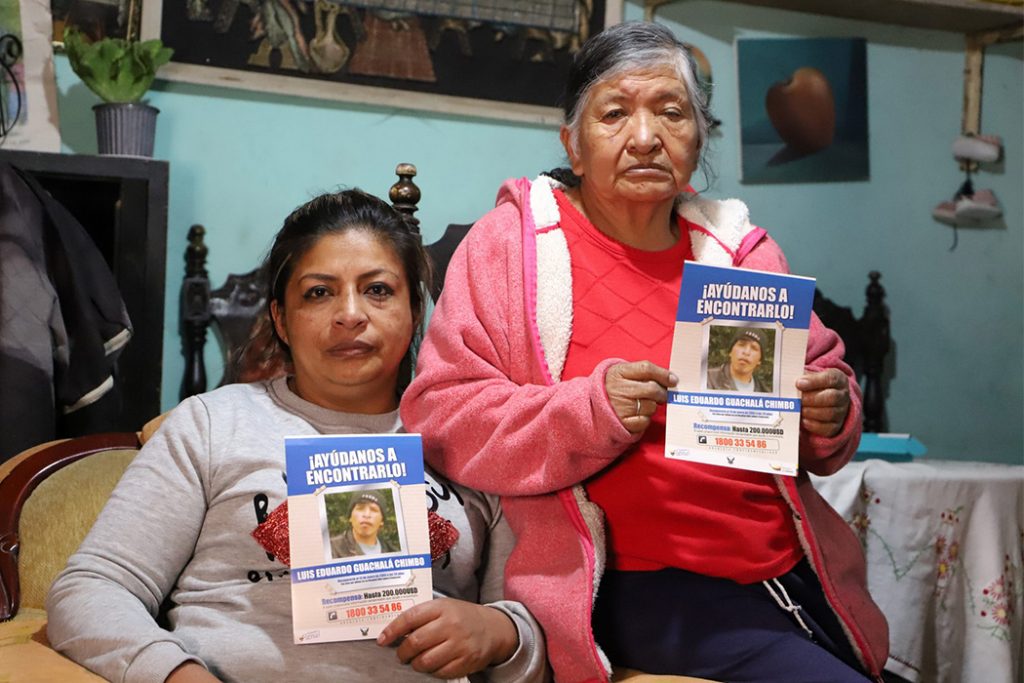BC Law’s International Human Rights Practicum continues to have an impact on decisions of the Inter-American Court of Human Rights (IACtHR). Its most recent achievement came in a ruling this spring involving the disappearance of a mentally disabled Ecuadorian man.
Under the direction of BC Law Adjunct Professor Daniela Urosa, and in collaboration with Assistant Clinical Professor Claire Donahue, the practicum engages law and social work students in crafting amicus briefs, the latest of which was submitted in the case Guachalá Chimbo et al. v. Ecuador. The students involved in this case were Marija Tesla ’22 and Nadia Bouquet LLM ’20. Their amicus argued two points—enforceability and scope of the right to health in mental disability cases and forced disappearance. On both issues, Urosa says of the court’s decision, “I can see the influence of our brief.”

Luis Eduardo Guachalá Chimbo disappeared from a public psychiatric hospital in Quito in 2004. There had been no informed consent for the hospitalization or the treatment received. At issue before the IACtHR when it heard the case in 2020 were violations of both Guachalá Chimbo’s rights and his mother and immediate family’s right to personal integrity because they had “suffered greatly due to the disappearance of their loved one.”
BC Law’s participation in Guachalá Chimbo, which Urosa believes will be a landmark case in the IACtHR system regarding disability persons’ rights, is also important for other reasons, according to Associate Dean for Faculty and Global Programs Katharine Young.
“The Inter-American human rights system is often missed in human rights clinics in US law schools, partly because of language barriers,” she says. “But it is tremendously significant, particularly given the increasing importance of regional—alongside United Nations—human rights systems.”
Dean Young views the clinic as a notable stamp for BC Law School: “Under Professor Urosa’s leadership, BC Law students are progressing careful and well-researched legal arguments in different contexts. These arguments help strengthen the accountability of states under the Inter-American human rights agreements they have ratified.”
In a note in the BC Center for Human Rights and International Justice’s summer newsletter, Urosa explains some of the practicum’s work since its inception in 2019. That includes submission of seven amicus briefs to the IA court “that reflect significant challenges for the human rights protection of vulnerable populations: women, indigenous people, afro-descendants, people with disabilities, children, LGBT individuals, journalists and human rights defenders,” she writes.
Specifically, the amici have included cases regarding the detention and torture of a transgender person in Peru, the kidnap and rape of a female journalist in Colombia, the death of an Uruguayan Afro-descendant in Argentina, and the obstruction of indigenous freedom of expression and cultural rights by the lack of community radio stations in Guatemala.
In the spirit of collaboration, the BC International Human Rights Practicum is also expanding its network with other human rights clinics in the US and in Latin American law schools. This past April, the practicum joined the Human Rights Clinic Network founded in support of the IA Commission of Human Rights’ Special Rapporteur for Social, Economic, and Cultural Rights, becoming the only US clinic to do so thus far.
“A comprehensive legal education that prioritizes the commitment to social justice in a global context must engage experiential learning in the international protection of human rights, giving students the necessary skills to advocate for people in particular vulnerable conditions and victims of discrimination,” says Urosa. “In that context, it is critical to focus on the Inter-American System of Human Rights since it is the regional system for protecting human rights in all the OAS [Organization of American States] member states, including the US.”
Photograph at top: The sister and mother of Luis Guachalá Chimbo, who disappeared in 2004. (Photo courtesy of Ecuador Catholic University Center of Human Rights.)


